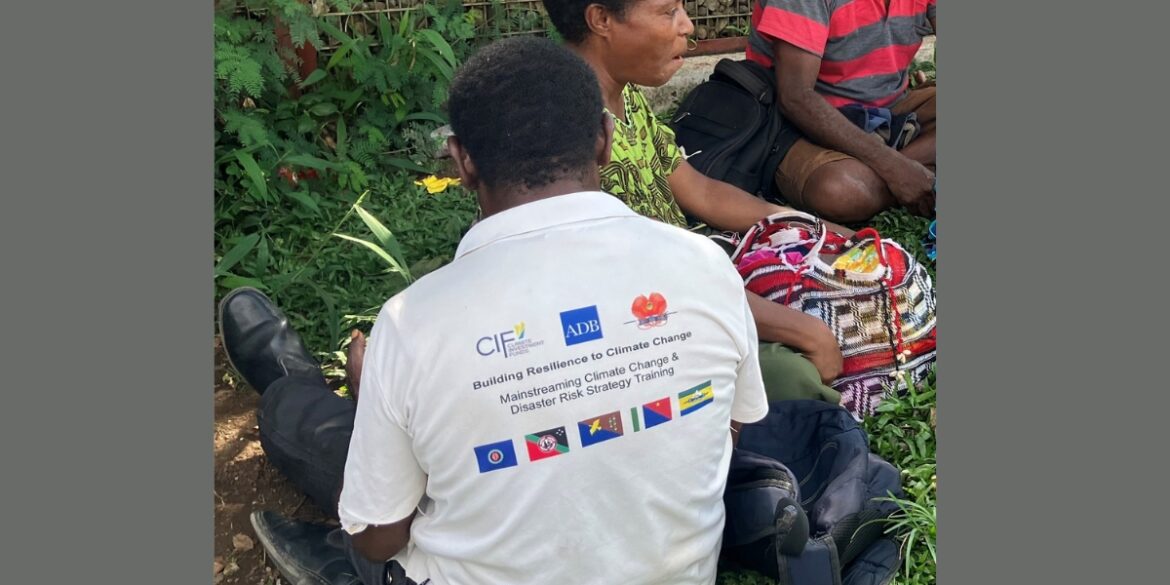This month’s Australian elections brought many surprises. One of them was that Labor, once returned, decided to separate the Pacific and international development ministerial portfolios for the first time (for any government) since 2007.
Then it was Duncan Kerr for the Pacific and Bob McMullan for aid, both parliamentary secretaries. Now we have Pat Conroy as Minister for Pacific Island Affairs and Anne Aly as Minister for International Development.
This might simply be a sign that Pat Conroy is overworked. After all, as Minister for Defence Industry, he is overseeing a massive and highly problematic scale-up of the defence budget.
But the optimist in me hopes that it might also be a sign that the Labor government is going to take aid more seriously, and think more globally, in its second term.
Yes, other countries around that world have recently cut, if not slashed, their foreign aid. But Australia was simply ahead of the curve by slashing aid a decade ago. Those cuts have never been reversed, and Australia is as a result today one of the world’s most miserly donors. We shouldn’t be! With Labor claiming to be the guardian of the fair go, one can only hope that it will increase aid in its second term, and not just for the Pacific.
Bringing a broader perspective to aid, one that looks beyond the Pacific and strategic competition with China, would be a forward step. It is incredible that in a world of unprecedented crisis Australian aid is justified not by its provision of support to relieve global suffering but by its further concentration on what is already the most aid-dependent region in the world. I was shocked to read in the most recent aid budget that Australia justified its support for the World Bank by the fact that the Bank worked in the Pacific. Talk about the tail wagging the dog.
I am a supporter of aid, but too much focus of aid on the Pacific not only distorts Australia’s priorities but is also bad for the Pacific. Australian aid has engendered a culture in the Pacific of workshops, training, much of it overseas, and t-shirts.
If aid is not the way forward for the Pacific, migration is. The first term of this Labor government was historic in its achievements for Pacific migration but, even though Labor made no new Pacific commitments going into this year’s election, there is plenty left to be done in its second term. This is especially so in a context in which the Pacific is increasingly demanding freer if not free movement within the region.
Most importantly, Labor has three years to bed down its ambitious new Pacific Engagement Visa (PEV). If the Coalition had been elected it is quite possible that they would have abolished the PEV. After all, they voted against the PEV legislation. Now Labor has three years to bed it down. The PEV represents a completely new approach to migration — it is the only visa we have that is not employer-sponsored but which has an employment requirement — and it will take some time to bed down. It is definitely facing teething problems.
The key difficulty has been for offshore PEV lottery winners to get the onshore job required for them to convert that selection by lottery into an actual visa. One possible reform would be to give those selected in the annual lottery a six- or 12-month employment visa to visit Australia and find a job. Another would be to drop the work requirement altogether.
Second, Labor in its first term introduced family accompaniment for the Pacific temporary migration program (PALM), but only on a pilot basis. Progress has been glacial on this key human rights reform, and the key priority here has to be to go from pilot to mainstream. (Labor’s 2022 commitment had no mention of any pilot.)
Third, PALM itself needs to be rescued. Multi-year (long-term) PALM visa numbers are flat over the last year, and multi-month (short-term) numbers fell by 10% over the same period.
Survey data tells us that the schemes are viewed by both participants and non-participants as highly beneficial. PNG, Timor-Leste and Solomon Islands in particular all want to send a lot more workers. This simply won’t be possible if the scheme continues to be over- regulated, causing employers to continue to turn their backs on the opportunity to bring out Pacific workers to do seasonal farm work, preferring to hire from the much less regulated backpacker workforce instead.
Fourth, PALM continues to suffer from the overlapping problems of too many workers
absconding and claiming asylum. Bad employers who break migration rules — most of them
operating outside the tightly regulated PALM — need to be cracked down on and the time
taken to process asylum applications greatly reduced.
Fifth, Labor in its first term only made a nod in the direction of the critical issue of backpacker visa reform. The unions, unable to recruit backpackers, turn a blind eye to the high levels of exploitation they suffer. In June 2024, Labor set up a review of regional visa settings, including the backpacker visa. That review never concluded. But Labor should follow through on the advice of its own migration review. As the Fair Work Ombudsman has said, the “work- for-visa” link embedded in the backpacker visa (with visa extensions granted if particular types and amounts of work can be demonstrated) is broken. All backpacker visas should be issued for three years, with no limits on or incentives to work. This would not only greatly reduce workplace exploitation; it would also reverse the PALM decline.
Sixth, new initiatives should be adopted. New Zealand has just announced that anyone from the Pacific with a valid Australian work, tourist or study visa will be given entry to New Zealand. New Zealand will also increase the duration of its short-term visitor visas for the Pacific from 12 to 24 months. Australia should do the same. Australia should also support the Pacific proposal for an APEC-type business card that would allow free business travel within the region.
And there is more. Superannuation for PALM workers needs a legislative fix. Regional PALM work restrictions make little sense. And the pathbreaking Australia-Tuvalu Falepili Union agreement could be replicated with other interested Pacific nations.
There is a lot to be done. So much so that I hope that, at the next election if not before, whoever is in government creates a Pacific migration portfolio and assigns a dedicated minister to it.

Written by: Stephen Howes
This is the first part of the Pacific Family Matters blog series which explores priorities for there-elected Labor government’s engagement on development issues with the Pacific Islands region. The series draws on the expertise of the Pacific Research Program, a consortium led by the Department of Pacific Affairs at the Australian National University (ANU), in partnership with ANU’s Development Policy Centre and the Lowy Institute.
Disclosure: The Pacific Research Program is an independent Pacific-focused research program that supports evidence-based policy-making in the Pacific and collaborative research relationships across the region. The PRP is co-funded by the Australian Department of Foreign Affairs and Trade and the consortium partners’ parent bodies. The views are those of the author only.
This article appeared first on Devpolicy Blog (devpolicy.org), from the Development Policy Centre at The Australian National University.
Stephen Howes is Director of the Development Policy Centre and Professor of Economics at the Crawford School of Public Policy at The Australian National University.


Comments are closed.